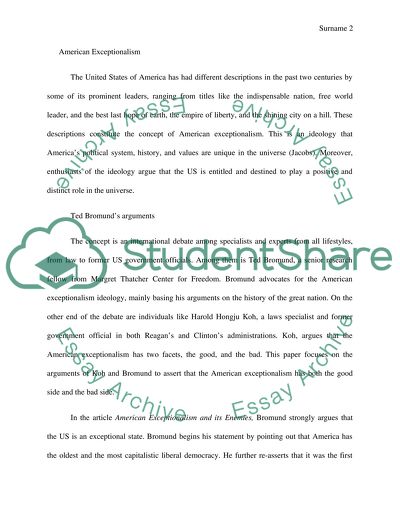Cite this document
(System of American Exceptionalism Case Study Example | Topics and Well Written Essays - 2000 words, n.d.)
System of American Exceptionalism Case Study Example | Topics and Well Written Essays - 2000 words. Retrieved from https://studentshare.org/sociology/1589157-america-exceptionalism
System of American Exceptionalism Case Study Example | Topics and Well Written Essays - 2000 words. Retrieved from https://studentshare.org/sociology/1589157-america-exceptionalism
(System of American Exceptionalism Case Study Example | Topics and Well Written Essays - 2000 Words)
System of American Exceptionalism Case Study Example | Topics and Well Written Essays - 2000 Words. https://studentshare.org/sociology/1589157-america-exceptionalism.
System of American Exceptionalism Case Study Example | Topics and Well Written Essays - 2000 Words. https://studentshare.org/sociology/1589157-america-exceptionalism.
“System of American Exceptionalism Case Study Example | Topics and Well Written Essays - 2000 Words”. https://studentshare.org/sociology/1589157-america-exceptionalism.


